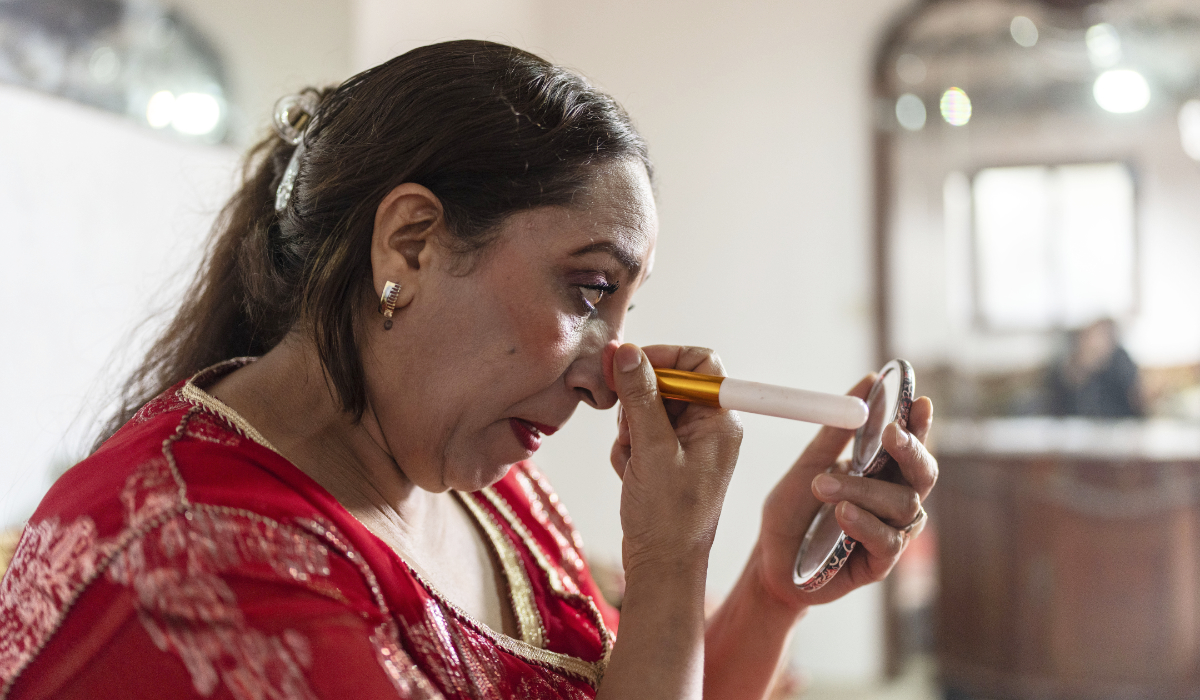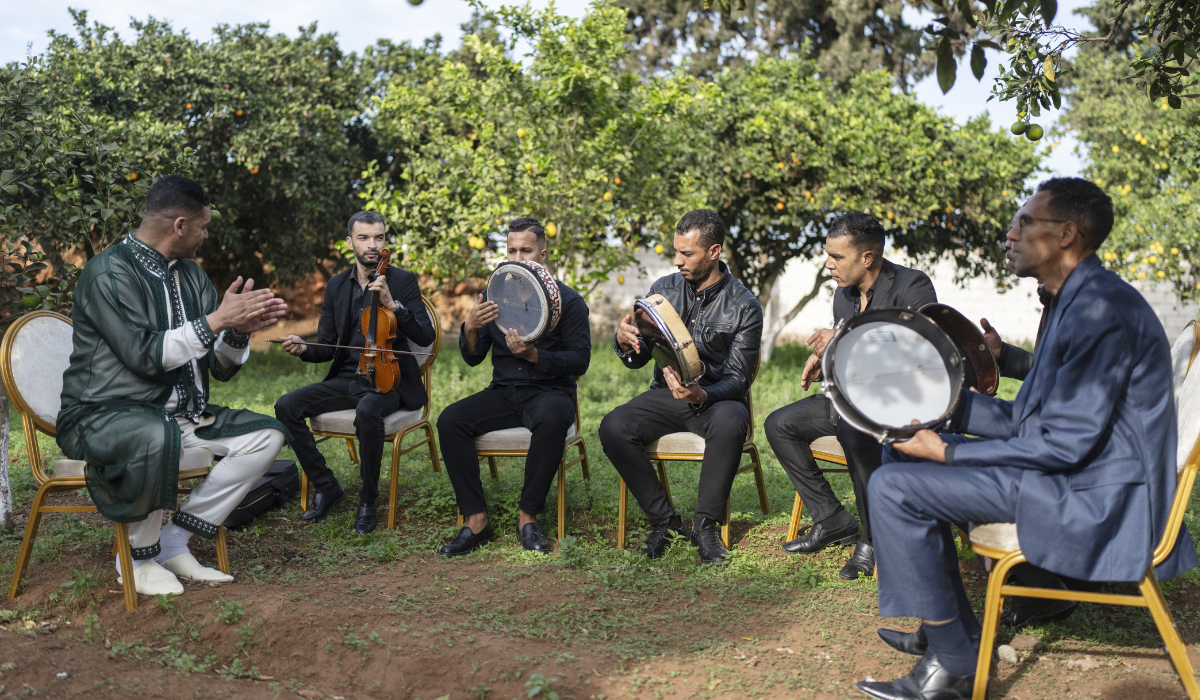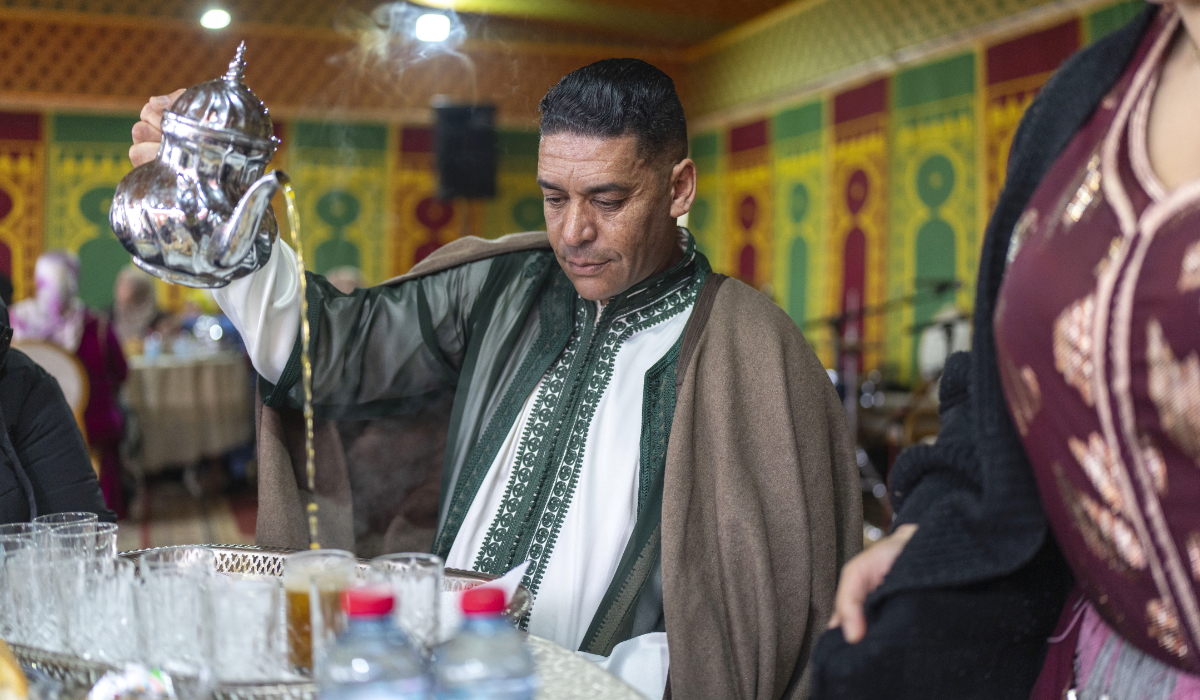RAFAH, Gaza Strip: Israeli Prime Minister Benjamin Netanyahu on Sunday brushed off growing calls to halt the military offensive in Gaza, vowing to “finish the job” as a member of his War Cabinet threatened to invade the southern city of Rafah if remaining Israeli hostages are not freed by the upcoming Muslim holy month of Ramadan.
Israel’s government has not publicly discussed a timeline for a ground offensive on Rafah, where more than half the enclave’s 2.3 million Palestinians have sought refuge. Retired general Benny Gantz, part of Netanyahu’s three-member War Cabinet, represents an influential voice but not the final word on what might lie ahead.
“If by Ramadan our hostages are not home, the fighting will continue to the Rafah area,” Gantz told a conference of Jewish American leaders. Ramadan, expected to begin March 10, is historically a tense time in the region.
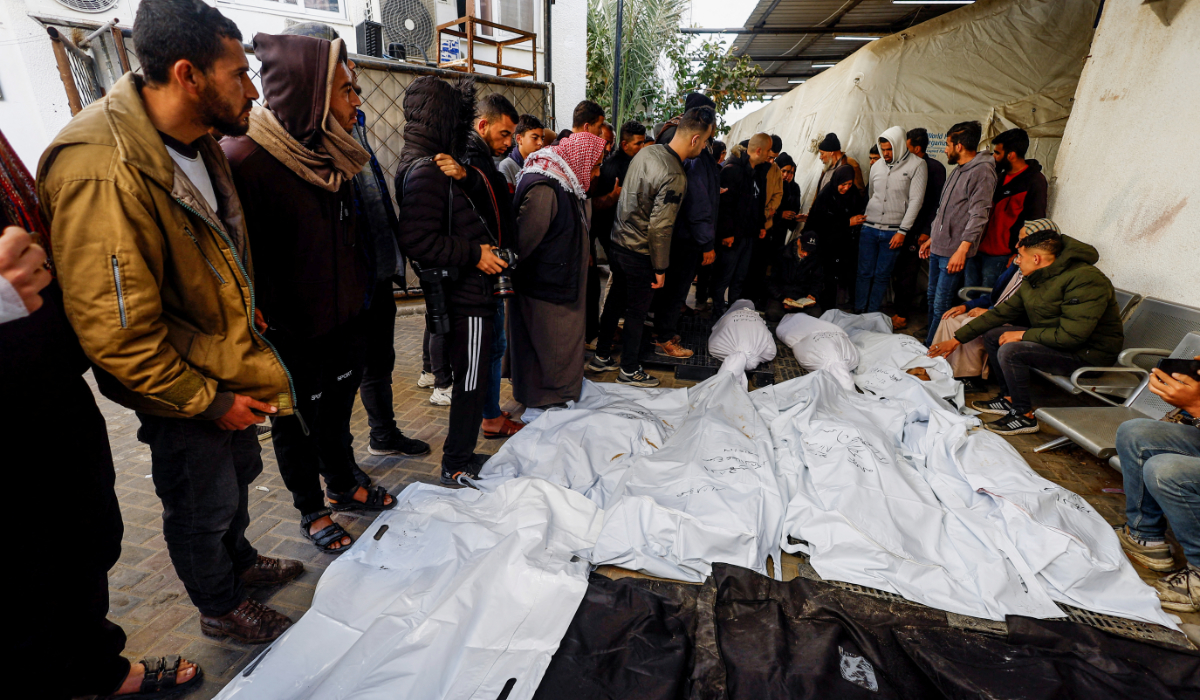
Mourners react next to the bodies of Palestinians killed in Israeli strikes, amid the ongoing conflict between Israel and Palestinian Islamist group Hamas, at Abu Yousef Al-Najjar hospital in Rafah, in the southern Gaza Strip, February 18, 2024. (REUTERS)
As ceasefire negotiations struggle after signs of progress in recent weeks, Netanyahu has called demands by Gaza’s ruling Hamas militant group “delusional.”
The United States, Israel’s top ally, says it still hopes to broker a ceasefire and hostage-release agreement, and envisions a wider resolution of the war sparked by Hamas’ deadly Oct. 7 attack in southern Israel.
The US also says it will veto another draft UN resolution calling for a ceasefire, with its UN ambassador warning against measures that could jeopardize “the opportunity for an enduring resolution of hostilities.”
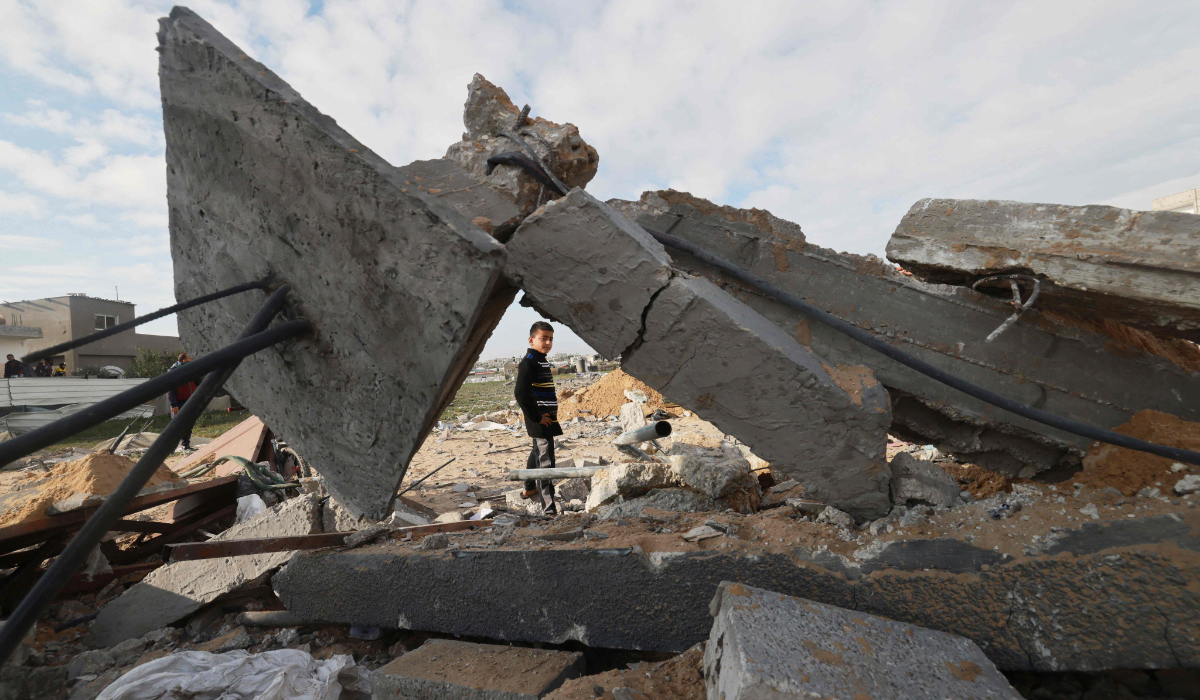
A Palestinian child walks past a destroyed house in Rafah on February 18, 2024, following overnight Israeli air strikes on the southern Gaza Strip border city amid ongoing battles between Israel and the Palestinian Hamas movement. (AFP)
But Netanyahu opposes Palestinian statehood, which the US calls a key element in a broader vision for normalization of relations between Israel and regional heavyweight Saudi Arabia. His Cabinet adopted a declaration Sunday saying Israel “categorically rejects international edicts on a permanent arrangement with the Palestinians” and opposes any unilateral recognition of a Palestinian state.
The international community overwhelmingly supports an independent Palestinian state as part of a future peace agreement. Netanyahu’s government is filled with hard-liners who oppose Palestinian independence.
Netanyahu wants Israel to achieve “total victory” over Hamas. In response to international concern over a Rafah offensive, he has said Palestinian civilians will be evacuated. Where they will go in largely devastated Gaza is not clear.
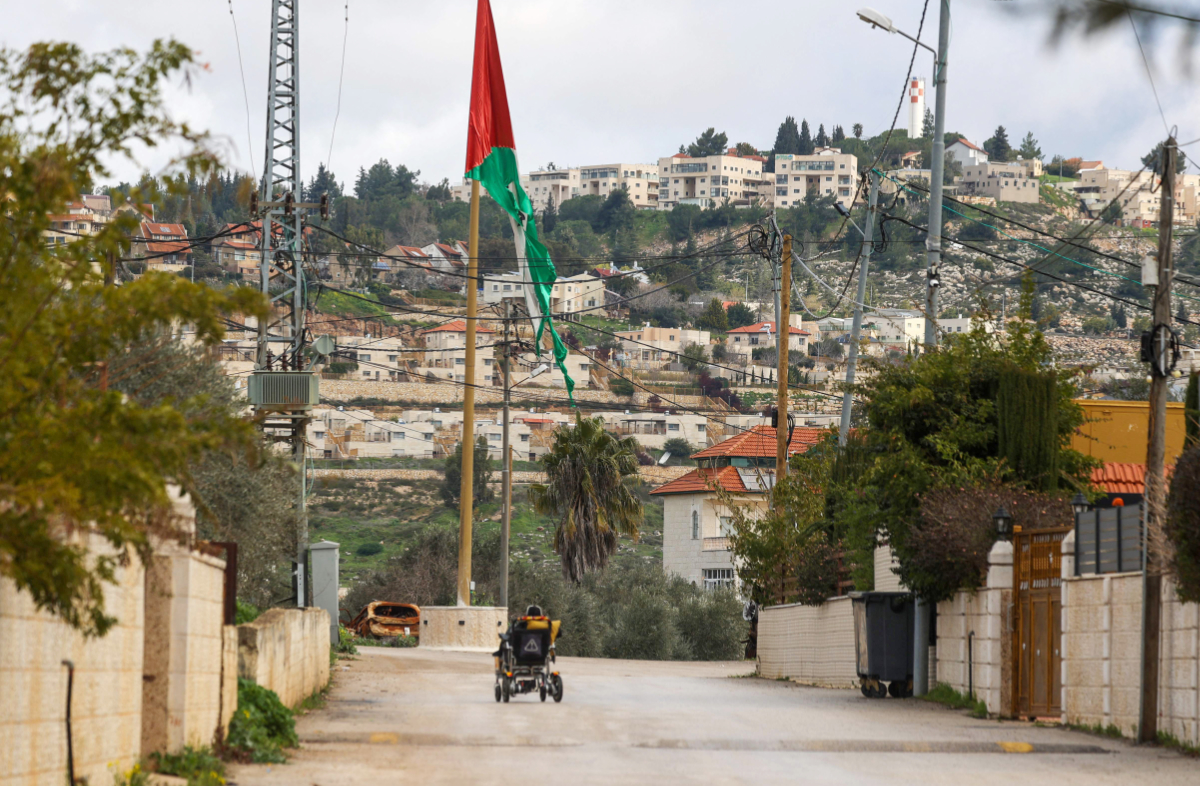
A picture taken in the village of Turmus Ayya near Ramallah city shows the nearby Israeli Shilo settlement in the background, in the occupied West Bank on February 18, 2024. (AFP)
The suggested timing for the offensive came as the World Health Organization chief said southern Gaza’s main medical center, Nasser Hospital, “is not functional anymore” after Israeli forces raided it in Khan Younis last week.
Israeli strikes across Gaza continued, killing at least 18 people overnight into Sunday, according to medics and witnesses. A strike in Rafah killed six people, including a woman and three children, and another killed five in Khan Younis, the main target of the southern Gaza offensive in recent weeks. Associated Press journalists saw the bodies.
“All those who were martyred were those whom the Jews asked to move to safe places,” said a bystander after the Rafah strike, Ahmad Abu Rezeq.
In Gaza City, which suffered widespread destruction early in the war, an airstrike flattened a home, killing seven people, including three women, according to relative Sayed Al-Afifi.
Israel’s military rarely comments on individual strikes and blames civilian casualties on Hamas because the militants operate in dense residential areas.
UN SAYS RAIDED HOSPITAL NO LONGER FUNCTIONS
WHO Director-General Tedros Adhanom Ghebreyesus said a WHO team was not allowed to enter Nasser Hospital on Friday or Saturday. In a post on X, he said about 200 patients remain, including 20 who need urgent referrals elsewhere.
Israeli Minister of Defense Yoav Gallant said at least 200 militants surrendered at the hospital. He also claimed that Hamas in Khan Younis is defeated, and that Hamas is largely leaderless in Gaza. He gave no evidence to support the claims.
The Gaza Health Ministry said 70 medical personnel were among those arrested, along with patients, leaving 150 patients without medical care. It said Israel refused to allow patients, including newborns, to be evacuated to other hospitals.
The military says it is looking for the remains of hostages inside Nasser Hospital and does not target doctors or patients.
The Oct. 7 attack killed about 1,200 people, mostly civilians, and took around 250 hostage. Militants still hold around 130 hostages, a fourth of them believed to be dead. Most of the others were released during a weeklong ceasefire in November.
The war has killed at least 28,985 Palestinians, mostly women and children, according to the Health Ministry, which does not distinguish between civilians and combatants. On Sunday it said 127 bodies were brought to hospitals in the past 24 hours.
Around 80 percent of Gaza’s population have been displaced, and a quarter face starvation. Wael Abu Omar, a spokesman for the Palestinian Crossings Authority, said 123 aid trucks entered Gaza through Israel’s Kerem Shalom border crossing Sunday and four trucks of cooking gas entered through the Rafah crossing with Egypt. That’s well below the 500 trucks entering daily before the war.
In the occupied West Bank, a shootout erupted when Israeli forces went to arrest an armed suspect in the town of Tulkarem. The military said the suspect was killed, and a member of Israel’s paramilitary Border Police was severely wounded. It described the target of the raid as a senior militant. The Palestinian Health Ministry said two Palestinians were killed.
The war in Gaza has threatened to ignite wider conflict in the region. The US Central Command said it conducted five self-defense strikes Saturday against cruise missiles and drones in area of Yemen controlled by the Iranian-backed Houthi rebel group.
US OPPOSES A NEW CEASE-FIRE RESOLUTION
Algeria, the Arab representative on the UN Security Council, has circulated a draft resolution demanding an immediate humanitarian ceasefire and unhindered humanitarian access to Gaza, and rejecting the forced displacement of Palestinians.
US Ambassador Linda Thomas-Greenfield said the draft “will not be adopted” and runs counter to Washington’s efforts to end the fighting. The US vetoed previous resolutions that had wide international support.
The US, Qatar and Egypt have spent weeks trying to broker a ceasefire and hostage release, but Qatar said Saturday the talks “have not been progressing as expected.”
Hamas has said it will not release all remaining hostages without Israel ending the war and withdrawing from Gaza. It also demands the release of hundreds of Palestinians imprisoned by Israel, including top militants.
















